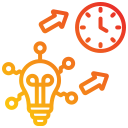Why Breakthroughs Are Accelerating Now
Progress rarely arrives in isolation. AI supercharges biology; new materials unlock better batteries; edge computing amplifies sensors. The interplay matters most. Tell us which intersections you’re watching and why they could outperform linear forecasts.
Why Breakthroughs Are Accelerating Now
Cheap compute, abundant datasets, and open-source frameworks shorten the distance between a clever idea and a working prototype. Share how accessible tooling has changed your projects, and what gaps still slow you down today.
Why Breakthroughs Are Accelerating Now
Sandboxes, pilot programs, and regulatory testbeds help translate breakthroughs into everyday reality. Have you joined a pilot or beta? Comment with lessons learned so others can avoid pitfalls and accelerate their own deployments responsibly.
Why Breakthroughs Are Accelerating Now
Lorem ipsum dolor sit amet, consectetur adipiscing elit. Ut elit tellus, luctus nec ullamcorper mattis, pulvinar dapibus leo.











